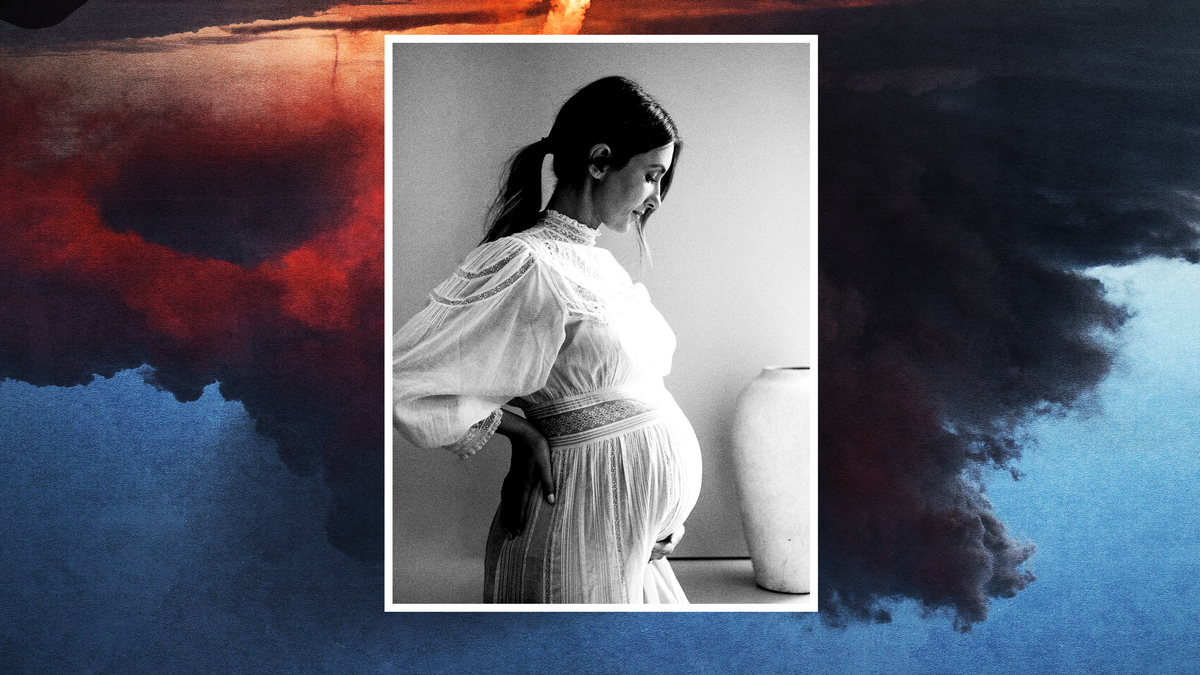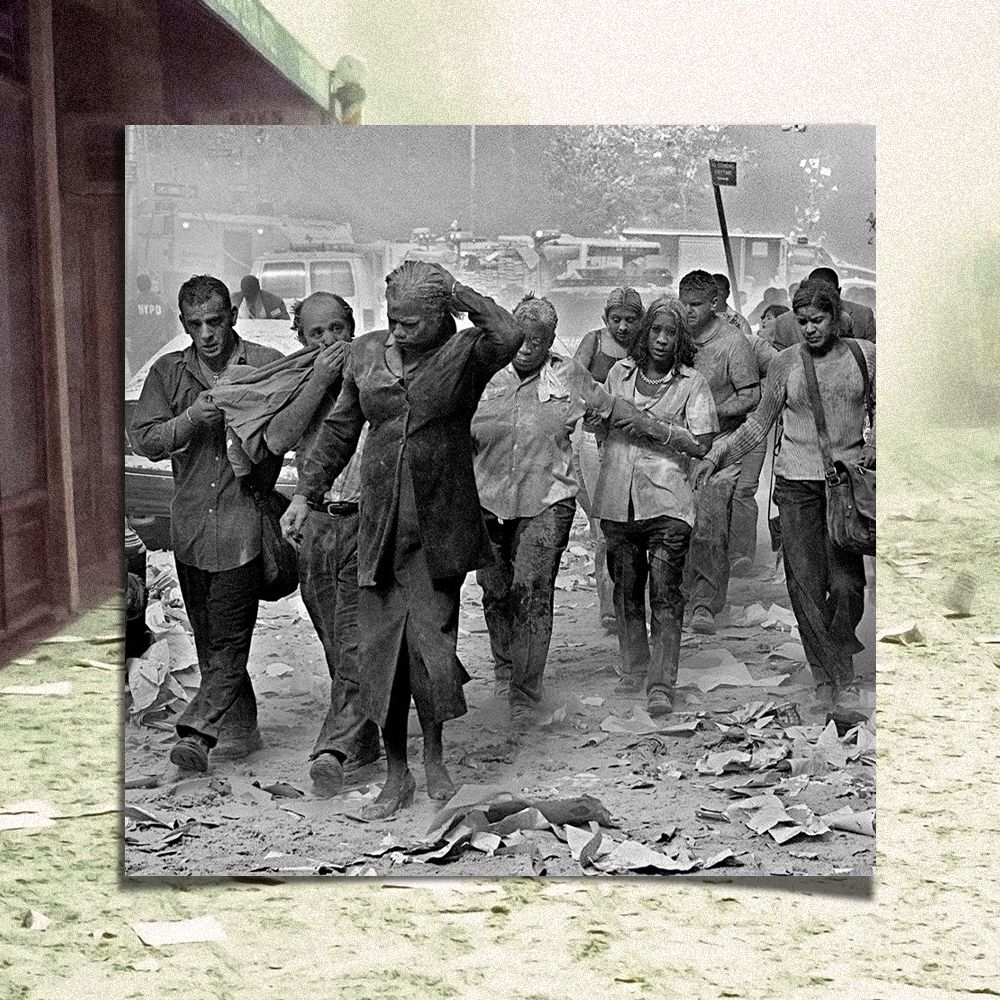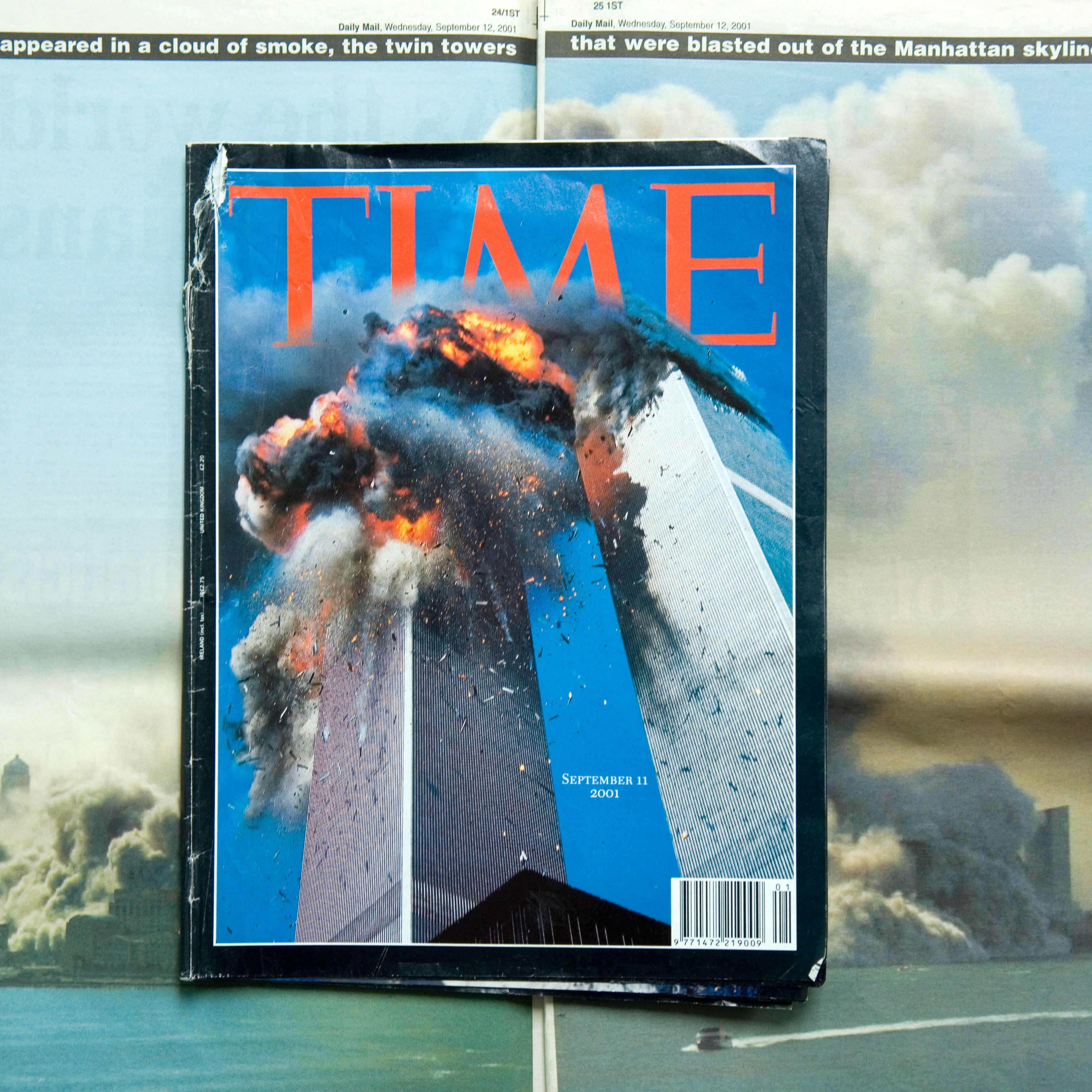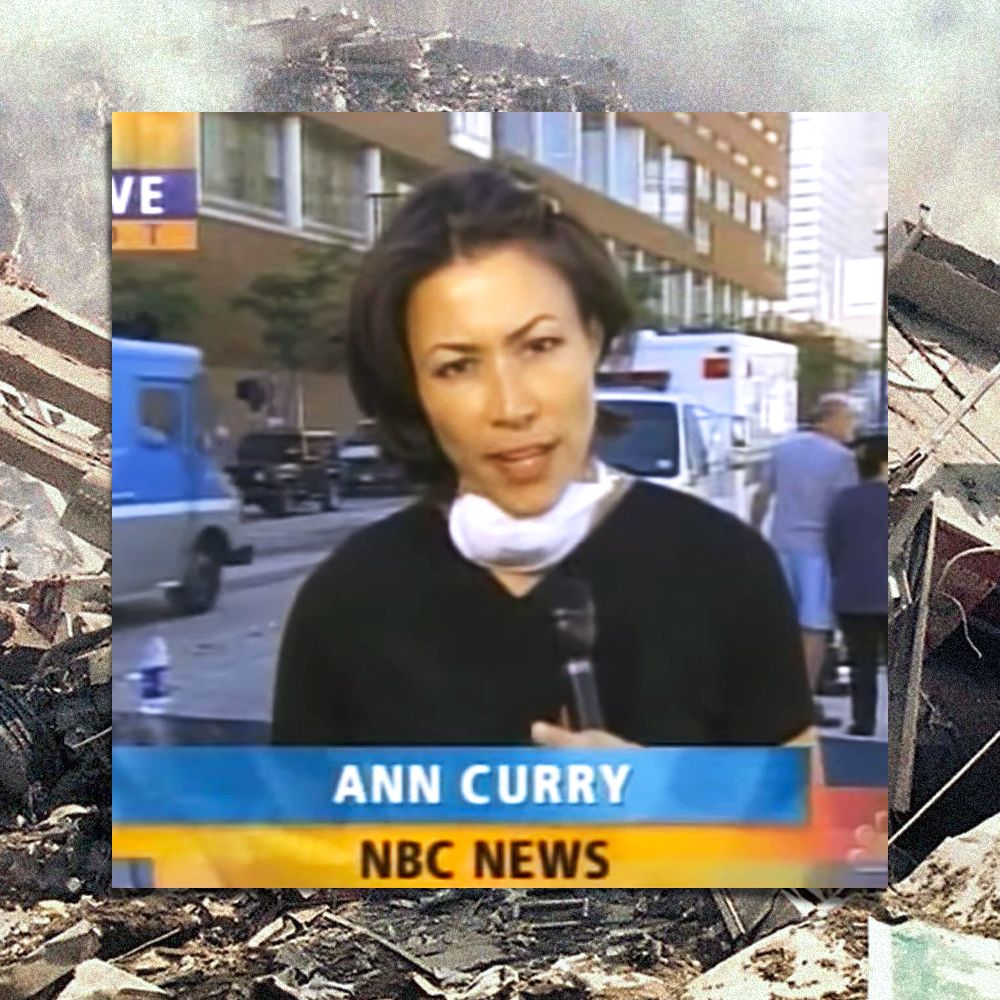Startup Life Helped Me Recover From a Year of Insurmountable Loss
Táche founder and CEO Roxana Saidi details how delving into her pistachio milk venture helped her soul heal from five subsequent tragedies, including a D&E abortion that intensified her startup's mission to empower women in the wake of Roe.


When I launched my company, Táche, at the end of 2020, little did I know what lay in the months ahead. Launching a business in the throes of a pandemic was already challenging, but the events that followed placed my personal and professional lives on opposite ends of the survival spectrum.
Statistics on the survival rate of startups aren't promising: According to the Bureau of Labor, 20 percent of new businesses fail in the first year of operation, and 45 percent fail in the first two. Layer a pandemic and childcare crisis on top of those grim numbers and the odds of success are slim to none.
I had time to reflect on those abysmal stats between 2015 and 2020, when Táche was in stealth-build mode. An oversaturated market, the challenge of finding a willing manufacturer, and the exorbitant amount of capital required were all reasons that a new pistachio milk company might fail in year one. But I was up for the challenge.
Shortly after starting Táche, my cofounder and husband, Kyle, and I experienced the very sudden deaths of five loved ones in a six-month period. Seemingly overnight, we were ambushed with loss in almost every form: cancer, suicide, accidental overdose, and homicide. Most shockingly, my father-in-law was an innocent victim killed during a high-speed police chase while on his way to church. Suddenly, Kyle and I had become that couple you hear about at a dinner party and think, Wow, I don't know how so-and-so are surviving.
A series of gut punches so devastating and in such rapid succession leave you mourning not only the lives of everyone lost but your former self as you knew it. That sense of heat reverberating in your throat, crawling north to your tongue, just before bursting into tears was as frequent as brushing our teeth. As one therapist put it: “It’s no wonder you are struggling to have faith in the universe right now.”
Our fifth loss in these short months first arrived as good news: I was pregnant! We thought, This is the win that we so desperately need! We were so thrilled to be able to share some happy news after so much trauma. After the darkest six months of our lives, there was some light at the end of the tunnel.
At our 10-week ultrasound, the happy news started to erode. The ultrasound showed signs of a fetal abnormality. After three weeks of invasive follow-up tests, we received the call we had been waiting for while on a business trip. I excused myself from the dinner table and, while trembling, walked to a corner of the hotel hallway.
Stay In The Know
Get exclusive access to fashion and beauty trends, hot-off-the-press celebrity news, and more.
It was confirmed: our baby had a terminal diagnosis and would not make it to term. So much for good news. The doctor presented my options. I stood listening to her as the hotel elevator doors opened and closed like blinking eyes, blankly staring and judging. She repeated what had already been told to us several times but was no more reassuring: “You’d be surprised how many women go through this, and it’s just a result of bad luck.”
I had an abortion by dilation and evacuation (“D&E”) last year on the eve of October 1, which also happens to be the first day of Pregnancy and Infant Awareness Loss Month, commemorating the tens of thousands of families across the United States that are devastated each year by the death of their baby. To me, it’s far from coincidental that our pregnancy came to an anguishing halt on this day. The weight of the loss—the four that came before it and the fifth that had been growing inside of me—was implacable. As misplaced as I knew they were, the feelings of shame and anxiety were palpable. I was desperate to talk to someone who had been through this but, unfortunately, our society still considers the topic oppressively taboo. It was maddening to know so many couples had been in this exact position and yet the lack of dialogue around abortion prevented most from ever sharing their story.
Throughout all of this, there was a solitary force in my life that continued to move in a positive direction: Táche. The business was thriving. We repeatedly exceeded sales projections, and accumulated awards, highly coveted press coverage, and buzz all over social media. It was staggering how disparate my professional and personal lives were. At work, I felt like a formidable iceberg; at home I was no more than a vulnerable puddle.
Best of all, the company's success was contributing to a worthy cause in the form of our nonprofit partner: The Lower Eastside Girls Club of New York City. From the beginning, we've donated a portion of profits and provided workshops and Táche products to the community. While tutoring teen girls at a homeless shelter in Los Angeles in my 20s, I experienced firsthand how programs targeted at supporting underprivileged young women could change the course of their lives. There was no question that Táche's mission would be squarely rooted in giving back to underrepresented girls and young women. It’s the most rewarding aspect of the work that we do.
We haven’t stopped there. In response to the news leak of the Roe v. Wade decision in May, we donated 100 percent of our proceeds from pistachiomilk.com to Jane’s Due Process, a Texas-based nonprofit supporting access to legal counsel, abortions, birth control, and more. On the day of the Supreme Court decision, we donated all of our proceeds to the cause again.
The wave of draconian abortion laws that have swept our nation recently has been quietly and steadily collecting in tide pools for more than a decade. The crusade to legally divorce women from their rights to make a decision about their bodies is upon us. Access to abortion—even in my case where fetal abnormality and eventual fatality are certain—is not only on the line but facing criminality. In states like Texas, for example, I would not only have been turned away but potentially prosecuted. Anti-abortion groups are waging a war on human rights and that’s something I'm not willing to stop fighting for.
Being a champion for women’s rights is central to who I am and, by extension, what Táche stands for. As I write this, I’m pregnant with a healthy baby girl. A baby girl who, astonishingly, may grow up with fewer rights than her mom did. However, no matter the politics, I’m going to teach my daughter the importance of supporting fellow women, and that using her voice for positive change, even in the face of backlash, is the right thing to do. To the therapist who worried about my ability to trust in the universe again, I’ve started to rebuild. Because of my daughter and the world we’re building for her with Táche, I’m beginning to have faith in it again.

Roxana Saidi is founder and CEO of Tache, and previously founded Rx Social.
-
 Adria Arjona Smells Irresistibly Delicious Courtesy of This $48 Hair Oil
Adria Arjona Smells Irresistibly Delicious Courtesy of This $48 Hair OilPlus the makeup routine that helps her feel "like a rebel."
By Ariel Baker Published
-
 Princess Anne's Unexpected Suggestion About Mike Tindall's Nose
Princess Anne's Unexpected Suggestion About Mike Tindall's Nose"Princess Anne asked me if I'd have the surgery."
By Amy Mackelden Published
-
 Queen Elizabeth's "Disapproving" Royal Wedding Comment
Queen Elizabeth's "Disapproving" Royal Wedding CommentShe reportedly had lots of nice things to say, too.
By Amy Mackelden Published
-
 Tia Launches Fertility Services, While Cofounders Prepare For a ‘Post-Roe’ America
Tia Launches Fertility Services, While Cofounders Prepare For a ‘Post-Roe’ AmericaAs women's healthcare startup Tia was gearing up to debut fertility care and a new clinic, the Roe v. Wade leak prompted CEO Carolyn Witte to accelerate plans to offer medication abortions, marking the most defining moment yet for the company.
By Tanya Benedicto Klich Published
-
 Reporting in Real Time: 5 Journalists Reflect on Covering 9/11
Reporting in Real Time: 5 Journalists Reflect on Covering 9/11Twenty years ago, these women told the stories of leaders, first responders, witnesses, and victims. Today, they tell their own.
By Rachel Epstein Published
-
 Inside the 'USA Today' Newsroom During the 9/11 Attacks
Inside the 'USA Today' Newsroom During the 9/11 AttacksSusan Miller, then the news copy desk chief, watched smoke billow past her office windows. She decided to keep working anyway.
By Rachel Epstein Published
-
 On 9/11, Sonya Ross Had to Balance Her Journalistic Duty and Personal Safety
On 9/11, Sonya Ross Had to Balance Her Journalistic Duty and Personal SafetyThe former AP White House reporter was one of five journalists selected for the "nuclear bunker pool" that traveled with President George W. Bush aboard Air Force One.
By Rachel Epstein Published
-
 On 9/11, Gulnara Samoilova Watched the South Tower Collapse Through Her Camera
On 9/11, Gulnara Samoilova Watched the South Tower Collapse Through Her CameraA seasoned photojournalist, Samoilova's instincts were to run towards the scene. Looking back 20 years later, she might not have made the same decision.
By Rachel Epstein Published
-
 1 Writer and 100+ Reporters: The Making of the 'TIME' 9/11 Cover Story
1 Writer and 100+ Reporters: The Making of the 'TIME' 9/11 Cover StoryNancy Gibbs reflects on writing the cover story for the black-bordered special issue many people still have saved today.
By Rachel Epstein Published
-
 Ann Curry on Reporting in the Aftermath of 9/11
Ann Curry on Reporting in the Aftermath of 9/11The former NBC News correspondent spent years reporting on human suffering. September 11, 2001 was unlike anything she had covered before.
By Rachel Epstein Published
-
 Black Girls Breathing Is Creating a Safe Space for Black Women
Black Girls Breathing Is Creating a Safe Space for Black WomenFounder Jasmine Marie reflects on how she's managing a business and preserving her mental health during this stressful time.
By Rachel Epstein Published